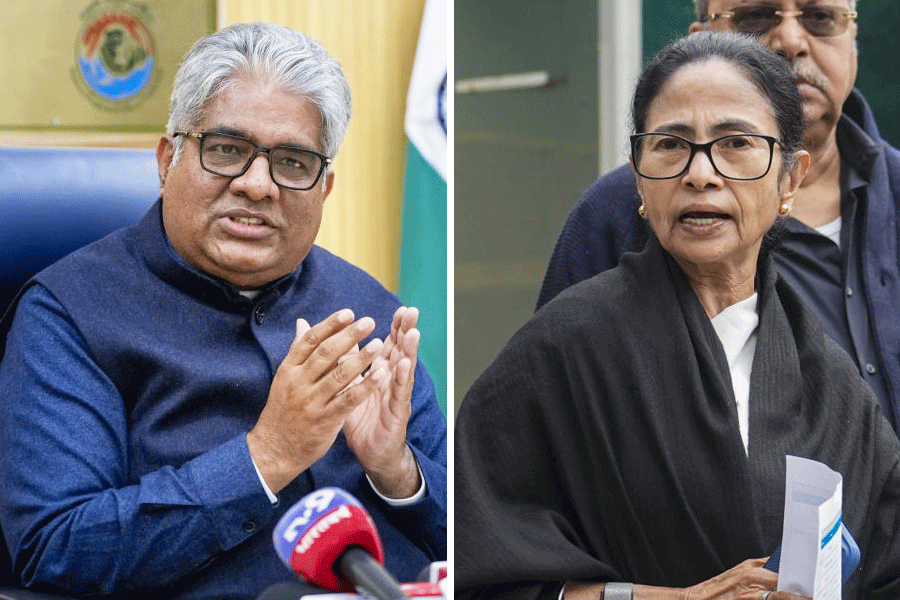Guwahati, Dec. 14: Did you know that the first sonnet in Sanskrit was written by an Assamese?
Renowned Sanskrit scholar and reader of Jadavpur University, Rita Chattopadhyay, today claimed that Anandaram Baruah from Assam wrote the first sonnet in Sanskrit in 1880.
Participating at a literary meet here today, Chattopadhyay said that the poem Granthavisarjanan was written by Baruah. The fact remained unnoticed until a Sanskrit scholar from Assam brought the matter to her notice three years ago.
Baruah, the Sanskrit scholar, was the sixth Indian Civil Service officer of the country and the first from Assam. He was also the first Assamese graduate. “There is no doubt that Granthavisarjanan is a sonnet. It bears all the characteristics of sonnets,” said Chattopadhyay. She thanked Jaharlal Saha, the Sanskrit scholar who brought the matter to her notice and said this discovery could be equalled to the discoveries of the famous astronomer Galileo.
Granthavisarjanan, she said, was a wonderful mixture of Petrarchan and Shakespearean sonnets. Although the octaves and sestets of Petrarchan sonnets were retained in Granthavisarjanan, the last couplets are similar to those of Shakespearean sonnets.
Saha, a retired Sanskrit teacher of Kahilipara High School here, said after Baruah, another Sanskrit scholar, Birendrakumar Bhattacharyya from Bengal, composed 50 sonnets in his book, Kalapika, post-1940.
Bhattacharyya claimed to be the first sonneteer in Sanskrit.
Saha said that although several scholars of Assam compiled the creations of Baruah at different points of time, they did not notice that Granthavisarjanan was a sonnet.
“The idea that Granthavisarjanan could be a sonnet came to my mind several years ago. But at that time I did not have the courage to assert it. So, I started studying Sanskrit literature and sonnets,” Saha said.
“I approached Rita Chattopadhyay three years back. She took up the matter seriously and discussed with different Sanskrit scholars for the last three years before confirming it was a sonnet,” Saha added.
Baruah dedicated Granthavisarjanan to his father Gargaram and mother Durlabha. “The sonnet was published as an introduction in his Sanskrit-English dictionary,” Saha said.
In a bid to create awareness among the people about Baruah’s contribution, Saha has translated all 30 Sanskrit slokas by Baruah into Assamese and compiled them into a book , which will be available in bookshops.










